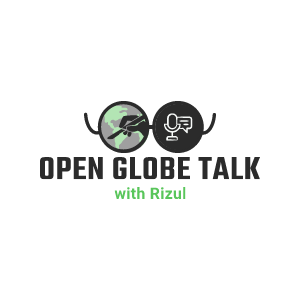September 12, 2022
Episode 30: Dr. Keith J Wroblewski, MD
A discussion on
“Taking the call of duty: Service to the nation and global ophthalmology”
A discussion on serving underserved communities and the transition from military to civilian service
Video
Audio
Dr. Keith J. Wroblewski, MD
Episode 30 is a special segment featuring Dr. Keith J Wroblewski, who is a retired colonel from the US Army as well as the Associate Professor and Vice Chair of Education at the George Washington University department of Ophthalmology. As we discuss Dr. Wroblewski’s work in both military medicine and the civilian world, we want to also thank all the armed men and women in uniform who put their lives on the line so that our nation could be safe each and every day.
Dr. Wroblewski is originally from Pittsburgh, Pennsylvania. He obtained his undergraduate degree from the United States Military Academy at West Point, New York and served four years with the 4th Infantry Division at Fort Carson, Colorado as an Infantry Officer. Dr. Wroblewski then pursued his medical education from Pennsylvania State University College of Medicine after which he trained in ophthalmology from Madigan Army Medical Center in Washington State. After residency, Dr. Wroblewski trained through 2 fellowship subspecialties: 1) Ocular Inflammation and Uveitis at the National Eye Institute in Bethesda 2) Ocular Pathology at the Armed Forces Institute of Pathology.
Dr. Wroblewski has served as the chair of Ophthalmology at the Walter Reed Army/National Military Medical Centers and has been the Chief of Surgery at Fort Meade, Maryland serving in the following countries: Korea, Bosnia, Germany, Iraq, and the states of Colorado and Washington. He has also serviced in multiple medical missions inclusive of countries such as Kenya, Mauritania, El Salvador, Honduras, Peru, Trinidad and Tobago, and Guatemala. With an incredible array of experiences, not surprisingly, Dr. Wroblewski has been endowed with many prestigious awards such as the Saint Lucia Medal from the Society of Military Ophthalmology.
Key discussion points:
The Daniel Finkelstein MD Charity Eye Clinic
How it got started: Dr. Daniel Finkelstein, MD
Staffed solely by medical students
Some student volunteers recognized in the slides: Jason Desantos, Sinan, Sonia Francone, Allison Hong
Some Frailties:
Not able to do refractions
Most of these patients are uninsured and so even with diagnosis, treatment can be difficult
Exposure to global health in medical school: 3-month medical exposure at Tenwek hospital in Bomet, Kenya
Path to fellowships
Scott Bowers in Wilmer suggested Eye Pathology
Decision to do both fellowships at different days of the week!
Mentor: Dr. Ahmed Hidayat, MD
Publications/Presentations
Ocular Tuberculosis: A clinicopathologic and Molecular Study
The AFIP History of Ocular Leprosy
Dr. Wayne Meyers, MD was the preeminent Leprologists in the US
Where is eye pathology training going the US?
Ophthalmic Pathology: Important Now and in the Future
Author: Dr. John Clarkson, MD 2009
Ukranian combat talk on biological warfare
Poison Darts, Pitch, Facials and Gas: Chemical and Biological Injuries of the Eye
Available on YouTube (link in resources)!
100-year Cycle of the Armed Forces Institute of Pathology
Pearl: Helen Campbell Forester Wilder
Histopathology tech who ran the ocular pathology service at the AFIP for multiple years
One of the only papers on the ocular injuries from Hiroshima tragedy.
Only honorary member in the American Board of Ophthalmology without being an ophthalmologist!
Dr. Lawrence Zimmerman, MD
Taught ~50 fellows
Dr. Robert Nussenblatt, MD at NEI continuing course: The Cherry Blossom Ocular Immunology and Pathology Course
Dr. Charles W. Everhart, MD at Wilmer
Dr. Sander Dubovy, MD at Bascom Palmer
Dr. Tatyana Milman, MD at Wills Eye
Dr. Vivian Lee, MD at Scheie Eye
Two questions:
What’s the difference between an owl eye and a human eye?
What do you see in the picture?
Monet’s garden when Monet had cataracts
Contact lens dilemma at the scrub sink
Enjoy yourself in what you do!
Cultivate your hobbies and interests
Find things you enjoy!
The transition from being an army to a civilian physician
Chair to staff ophthalmologist
Lots of trauma in civilian world as well
RVU-based system
Not compensated for what makes physicians happy: ie., Teaching the next generation of physicians
Teaching style in Military environment
Colonel (Retired) Thomas Mader, MD & Colonel Robert Mazzoli, MD (has been very active in the Ukraine issue and the AAO) at the Madigan Army Center
Walter Reed was filled with even more incredible individuals and mentors!
Dr. Bill Wilson, MD (missionary in Sierra Leone and Papua New Guinea) & Dr. Dan Gradin, MD (now at OHSU)
Mission work through the Army
Not always safe or felt welcomed
A lot of times, it can hurt the local folks by flooding the market with help (ie., eyeglasses)
It’s the relationships you build that are most important
From Strength to Strength - Book to read
“Directions I’m leading: Continue the Cherry Blossom, get down to Haiti, continue teaching residents, and enjoy the wide variety of patients I see in Washington, DC!”
Episode-based Resources:


